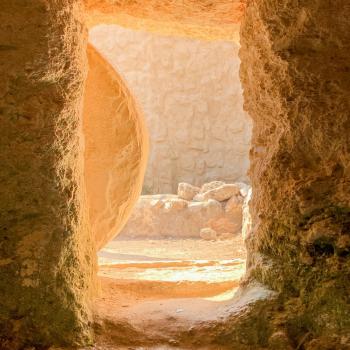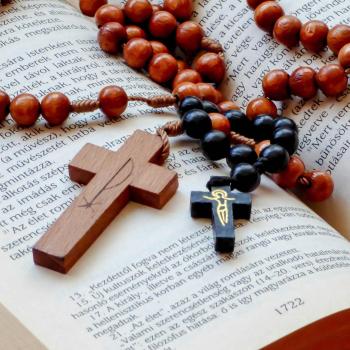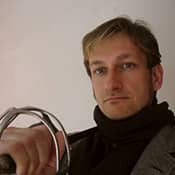I don't usually use this space to talk about worship of the gods. In fact, I've written that we shouldn't ask for their help. The gods don't fix the odds for the faithful, nor against the bastardly. Divine intervention is best seen as a literary device used in very exciting sagas.
But the gods are worthy of our attention.
I am a disciple of Lugh, the Heroic God. My apprenticeship with Lugh has informed the development of the heroic life. It has also transformed who I am.
I believe such transformation is the purpose of spirituality.
When you take time with a god, you become a bit more like them in your mindset. We choose the gods who are most like us to begin with, but over time, their presence helps burnish us. Their influence refines us into better, wiser beings.
Some gods are gentle. Lugh is not. Since he is the god of heroes, I thought it would be nice to share a few stories of my experiences with him.
I've been told since I was young that Lugh is my patron deity. I always denied this. I didn't feel drawn to Lugh; in fact, I knew very little about him. I think this is widespread among polytheists, even Celtic folks. People view Lugh as a warrior god and if they're not soldiers or police they don't have much calling for that. But there's a lot more there.
Lugh is the ideal king. When he first came to Tara, the seat of high kings in Ireland, the god who held the throne stepped down. Lugh was appointed leader in the war against the giants and, when it was over, he was installed as the new high king. In this position, it was his job to perfectly embody and balance the roles of the four castes: priests, warriors, normal citizens, and artists and craftspeople. Anyone in a leadership position should take note.
Lugh achieved success because he was a multipotentialite, the famed "master of all the arts." If you have more than one true calling, Lugh is your god.
But I thought he was just a guy with a magic spear, and I was more interested in nature and meditation. I ignored the fact that he came up over and over in my life.
As I taught my apprentices, the presence of Lugh became more pronounced. I realized that I see moments of heroic sacrifice as the most moving scenes in the sacred myths. And I began to see that the stories of Lugh—his challenge for the royal seat, his battle against his grandfather, his act of mercy toward the giants, and his moments with Cú Chulainn—are the moments that stand out to me among the incredible, stirring scenes of the Irish repertoire.
But none of these are why I turned to this noble deity. Personally, I've always made the most progress in an apprenticeship style setting. Traditional apprenticeship attacks the ego. The teacher breaks the student down, then they build themselves back up. If they stay on board for the whole arc they absorb a tremendous amount of traditional knowledge, hone their abilities and achieve a spiritual mastery that's only possible when you've confronted yourself.
Pretty good theory, isn't it?
But in my temple I was the teacher, not the student. My frequent admonishment that I'm no master was good for my students, but it was no substitute for a teacher of my own. Humility and introspection are difficult to maintain when there's no one to slap you down.
As I came to understand the character of Lugh through the sacred myths, and recognized him watching over the temple, I saw someone who had the strength to be a teacher.
Lugh is a hard god. He himself apprenticed under Mannanán, the old man of the Irish gods and the only one who lived across the sea in the magic land even before the deities left Ireland. His grandfather, Dian Cecht, is the physician-god who killed his own son for performing unauthorized treatments. Lugh knows something about strictness.
Add this to the fact that he's a military commander and you get a picture of a hard-nosed deity.
So I was reluctant to jump in with him. I performed a series of short-term devotions over the course of nearly two years. I received sparing guidance from my new patron god, but it was unerring and straightforward. Lugh doesn't speak in riddles and mysteries; he gives orders, and you do them or you quit.
It was this direct, clear style that made me love him.
Some people want their gods soft like pandas. I respect that. I spent years worshiping Danu and still offer routinely to her and Brighid. You can't get much more of a "huggable divinity" vibe than those.
But I'm at a place where I'm willing to take on a project and work relentlessly till it's done. I'm ready for clear, definite instructions, saying: Do this, you'll be glad you did.





